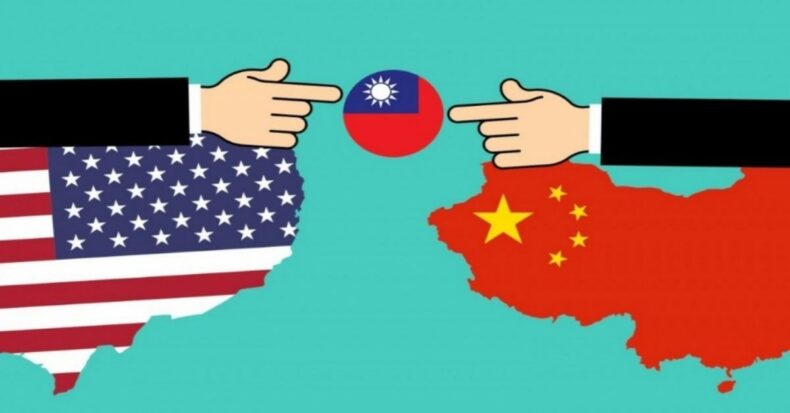The meeting took place after the US announced its plans to sell $750 million worth 40 self-propelled howitzers to Taipei, a deal which Beijing condemned strongly.
A virtual meeting was held between officials of the Coast Guards of the United States (US) and Taiwan.
The discussion was held to find ways for improving cooperation and communication between the two Coast Guards, despite efforts of China to isolate the self-governing island democracy.
The virtual meeting held earlier in the week on Tuesday came amid moves made by US and other democracies to defy Beijing’s offensive to compel Taiwan to accept the sovereignty of China.
The Virtual Meeting: – Between US AND Taiwan
Even though the US doesn’t provide diplomatic recognition to country, its de-facto embassy in Taipei, the American Institute in released a statement after the meeting stating that both the sides discussed measures to improve joint maritime responses, disaster relief, environment missions as well as improvement in communication and personnel educational exchanges.
It further reinstated the desire of both the sides to continue working on common objectives of preserving maritime resources, participating in joint maritime search & rescue operations, reduce illegal, unreported and unregulated fishing, etc.
The country also reiterated its support to meaningful participation and contribution to issues concerning the world.
The meeting follows the announcement of plans by the US to sell 40 self-propelled howitzers to Taiwan in a deal valued at $750 million that drew strong condemnation from Beijing.
Amid the increasing animosity between the US and China, the former US administration increased attempts to boost it’s relations with Taiwan, a stance which is being continued thus far by the present US administration.
The virtual meeting took place after the US announced its plans to sell $750 million worth 40 self-propelled howitzers to Taipei, a deal which Beijing condemned strongly.
China’s response:
China is yet to give a response to the meeting between the two coast guards, but last week it criticized the howitzer deal as severely interfering in China’s internal matter and sent wrong signals to ‘Taiwan independence’ separatist forces and also endangered stability across the Taiwan Strait.
China claims full sovereignty over Taiwan, an island of almost 24 million people far away from mainland China, despite the fact that it is being governed separately for more than seven decades.
On a similar not, China also recalled its Ambassador to Lithuania and expelled the Baltic nation’s top representative to Beijing. This diplomatic row comes amidst plans to open a new diplomatic office in Lithuania, which also intends to open a trade office in Taiwan.
The Lithuania incident is interesting as this is the first time that China has recalled an ambassador from a member European Union (EU) country since the EU’s establishment in 1993 and following EU’s criticisms of China on human rights issues.
Chinese President Xi Jinping has increased pressure on Taiwan, who overwhelmingly rejects Beijing’s demand for political unification with the mainland.
China has consistently blocked Taiwan from participating in the United Nations and other international organizations.
It has further stepped up its pressure since the election of Taiwanese President Tsai Ing-wen in 2016. Ms. Tsai was re-elected by a strong majority in 2020.
Taiwan’s Unification – An uphill task for China: –
Its quest to annex Taiwan will face an “uphill battle” as the people of Taiwan’s continue to pursue a separate national identity, a Chinese dissident Jianli Yang said.
The founder as well as president of Citizen Power Initiatives for China further stated that even though Beijing has been optimistic annexing Taiwan, the people of the self-ruled island not only oppose the idea of a united China, but are also against even identifying themselves as of Chinese ethnicity.
Mentioning a study by National Chengchi University’s Election Study Center, Jianli pointed that, over the last three decades, there was a considerable increase in the number of people in Taiwan who solely identify themselves as Taiwanese.
On the contrary, there was a steep decrease in the number of people identifying themselves as both Chinese and Taiwanese.
With inputs from multiple media outlets.
Digital Marketing: The Messiah Of The Digital World – Asiana Times













